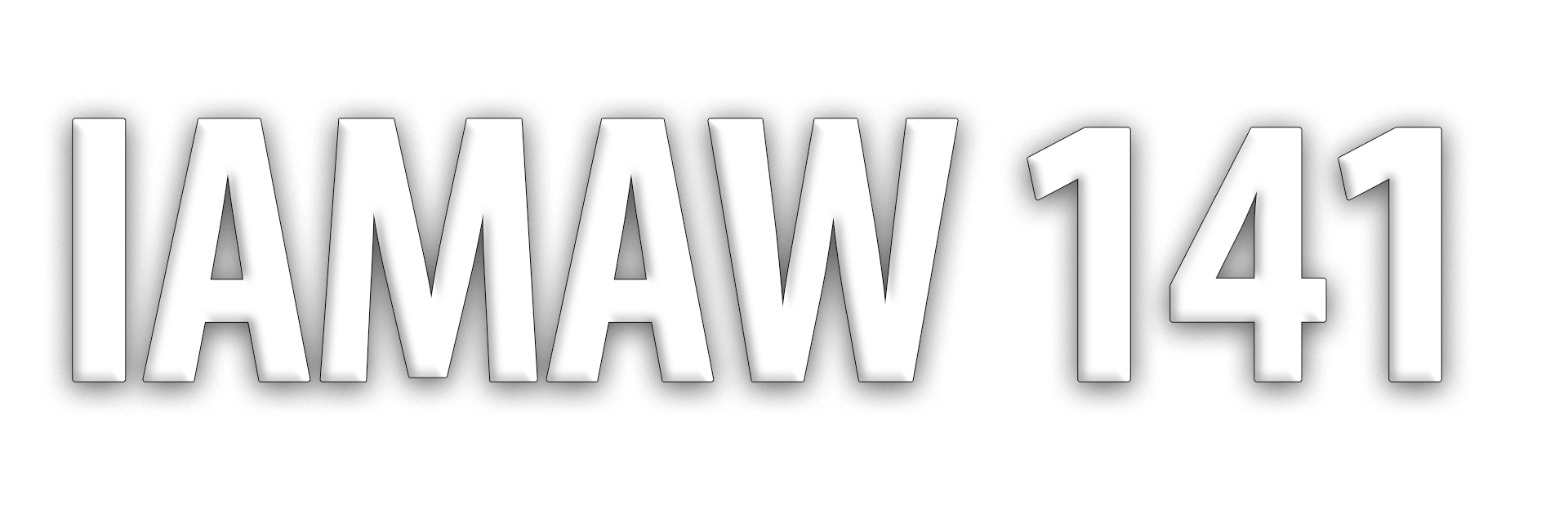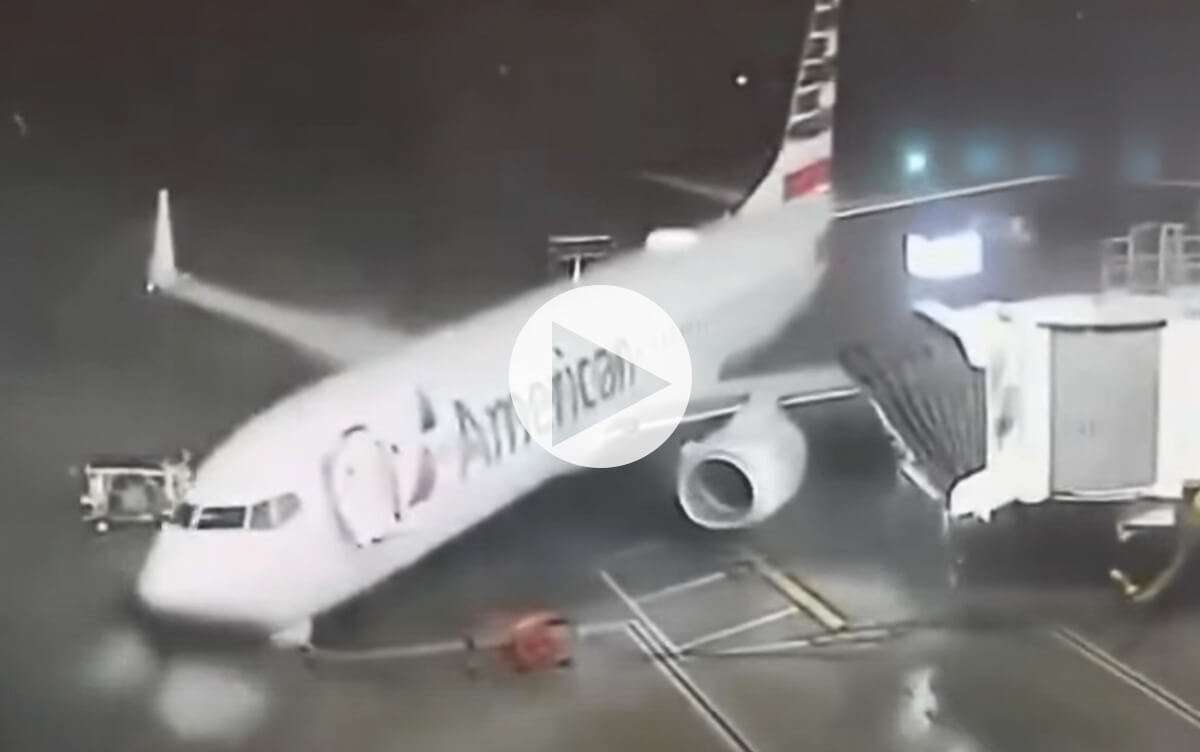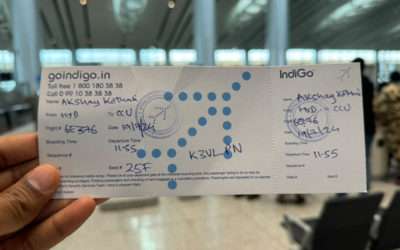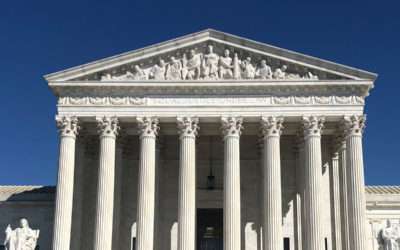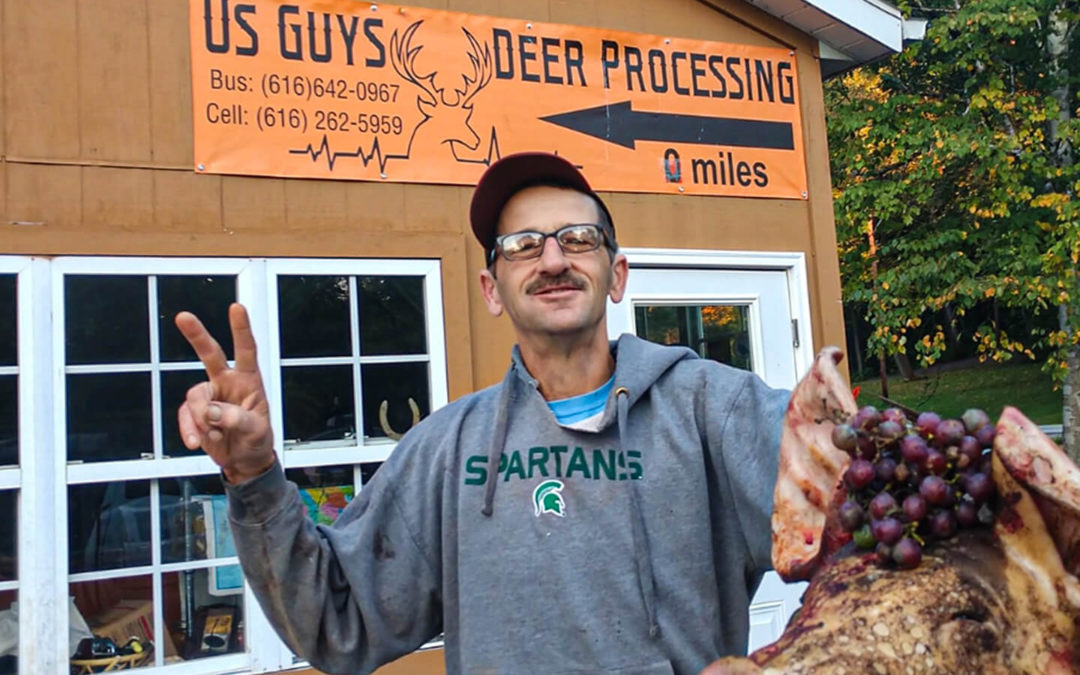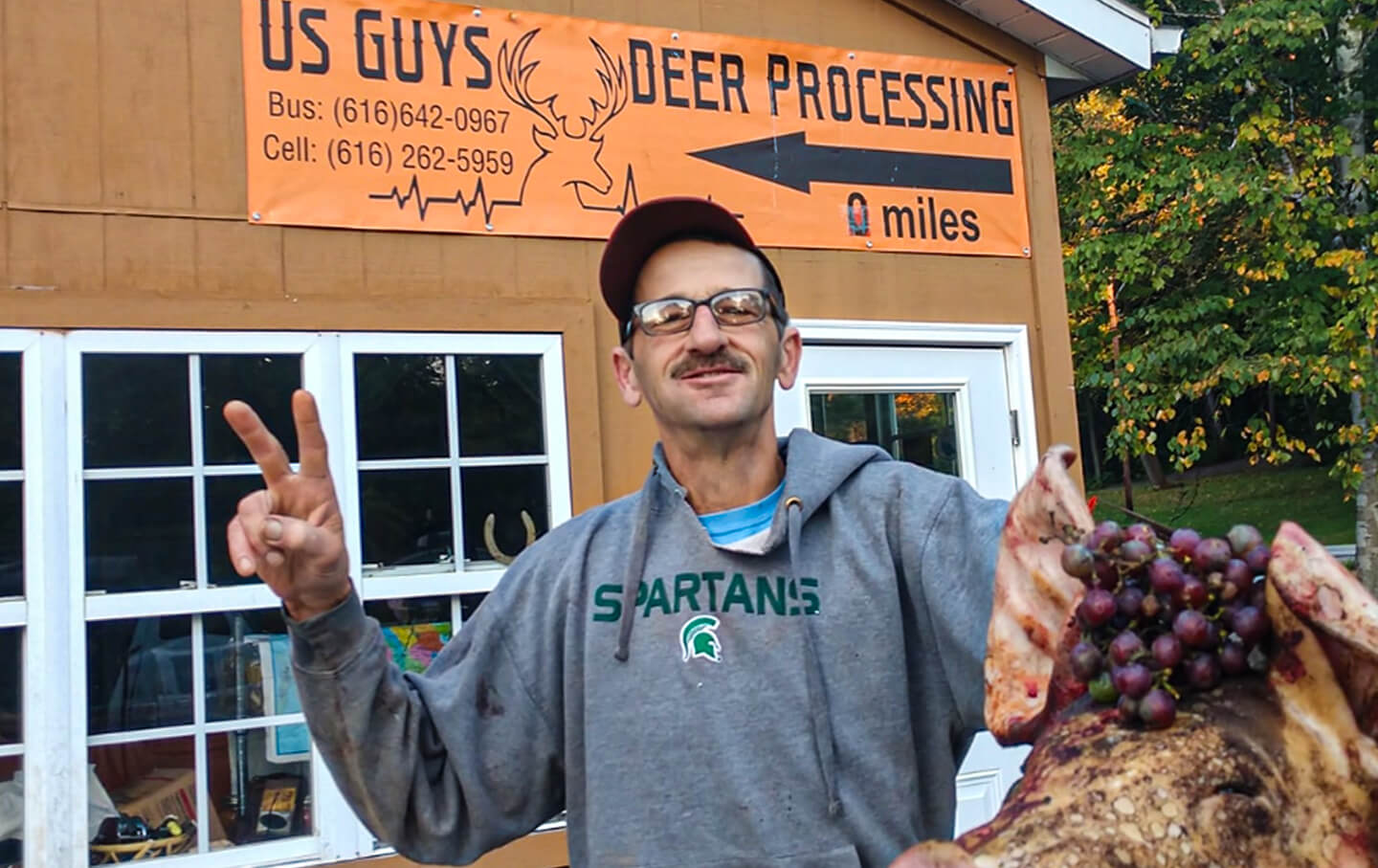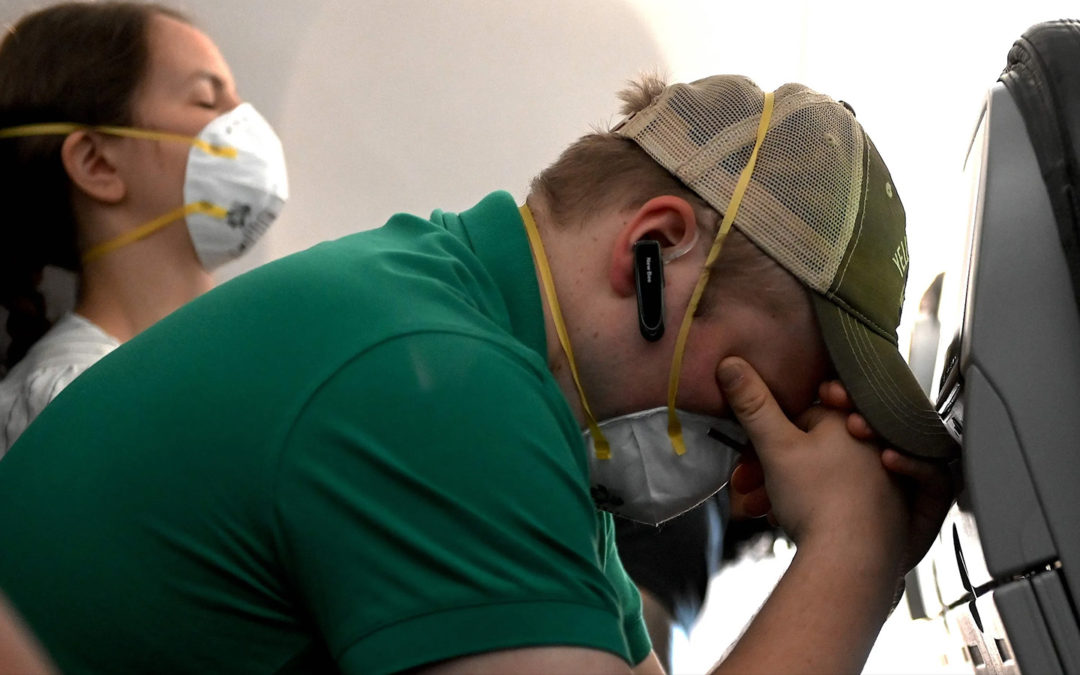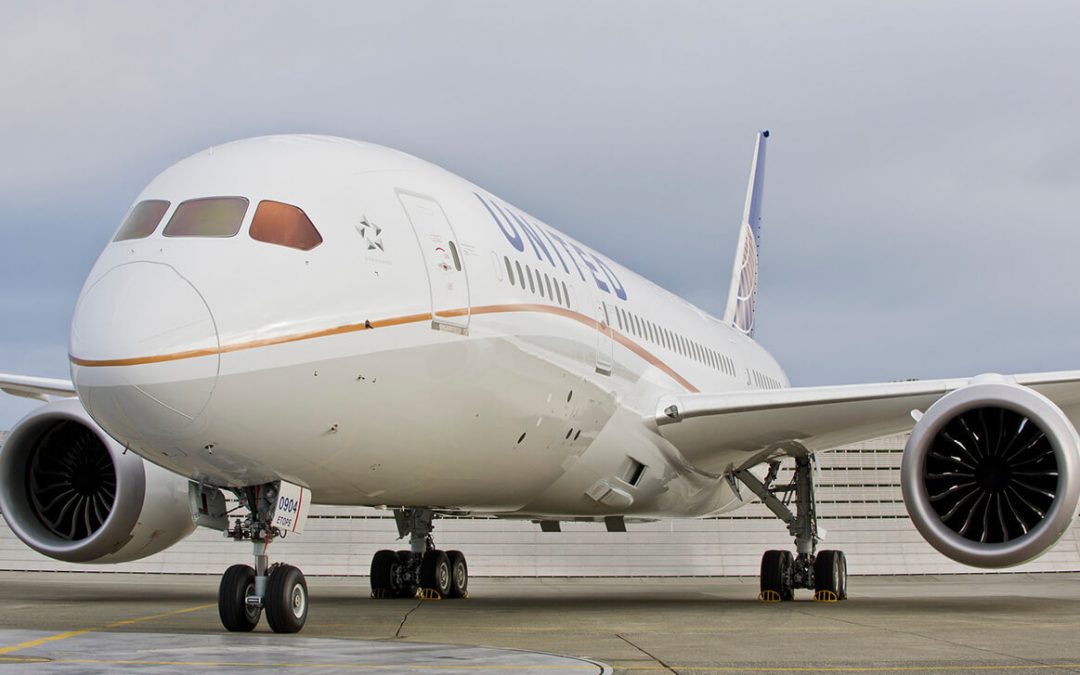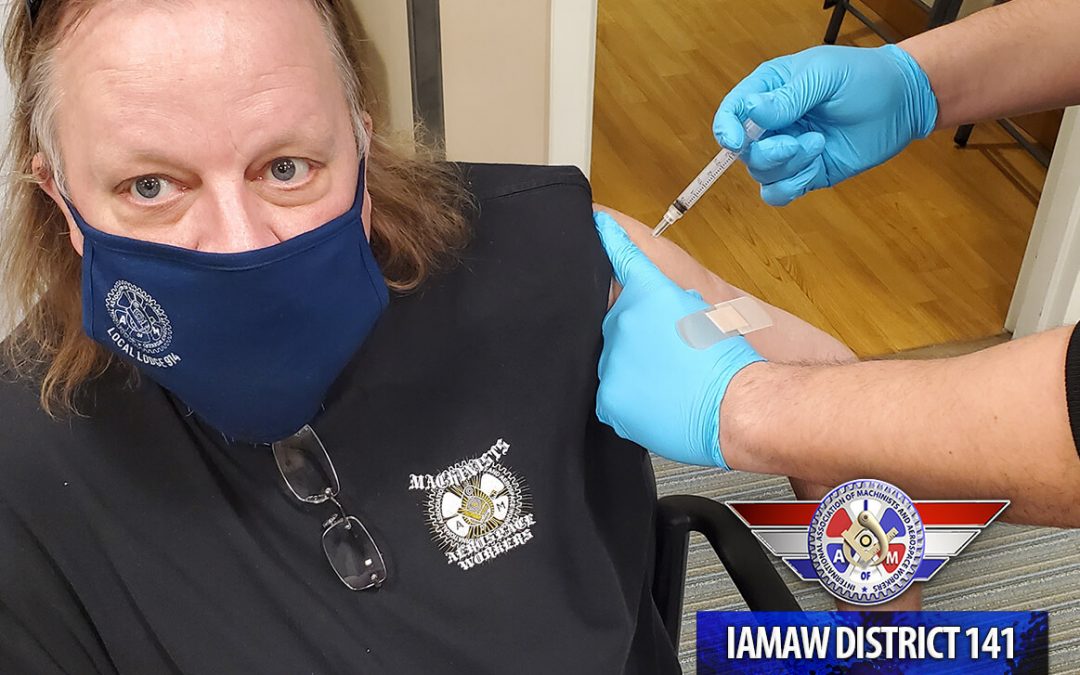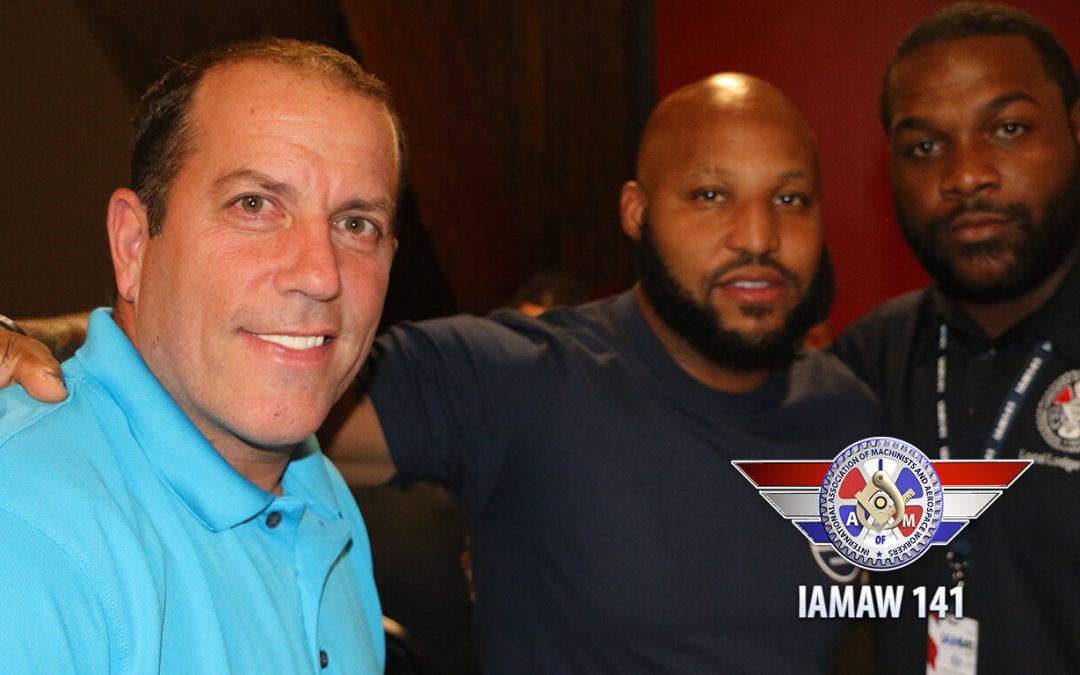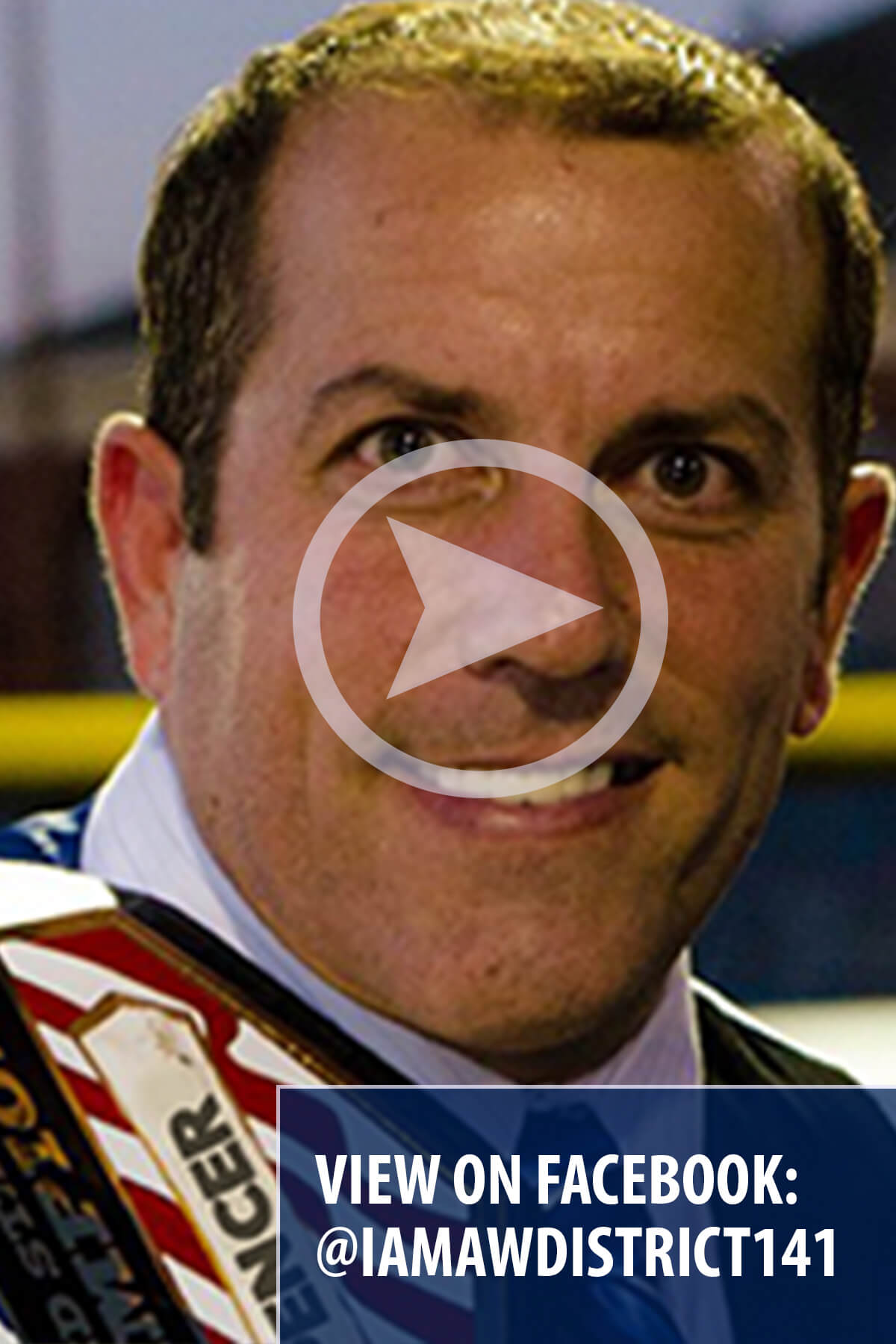Microsoft Update Triggers The Largest Tech Disaster in HistoryOn Friday morning, a global computer outage led to the cancellation of hundreds of flights across the United States, causing delays and confusion at airports nationwide. The disruption also affected...
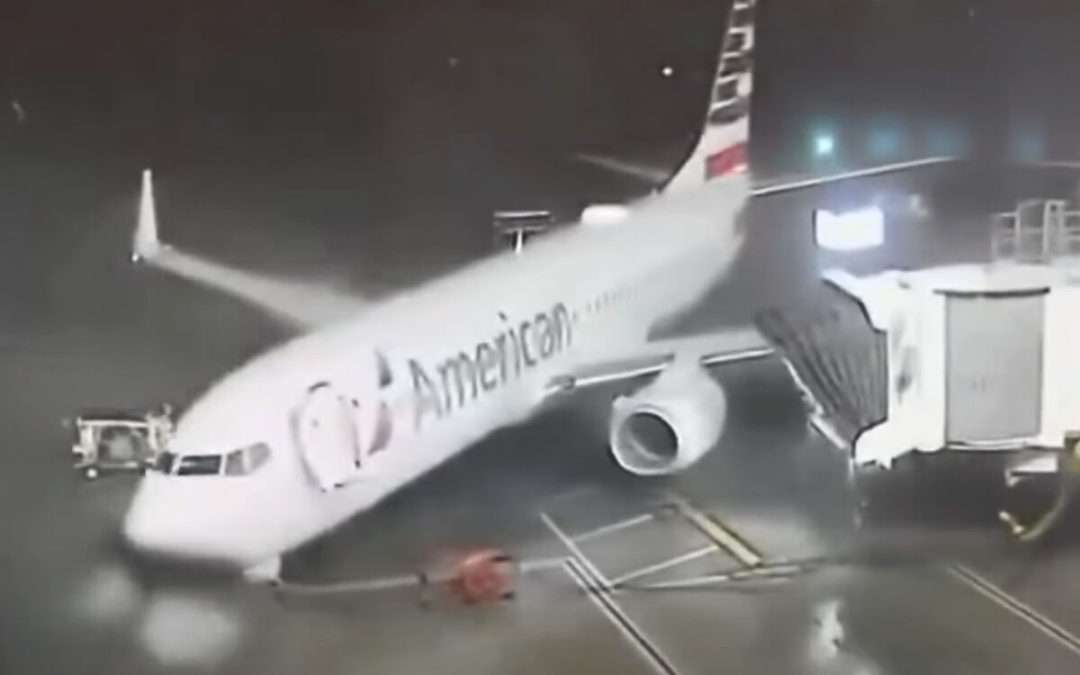
WATCH: Storms Blow American Plane from Jet-Bridge
WATCH: Storms Blow American Plane from Jet-bridge
WATCH: Storms Blow American Plane from Jet-Bridge
DFW — A dramatic incident unfolded at Dallas Fort Worth Airport on Tuesday when powerful winds pushed an American Airlines Boeing 737 from its gate. The nose of the 90,000-pound aircraft was shoved along the tarmac, disconnecting the loading bridge. Fortunately, no passengers were on board, and maintenance crews are conducting thorough inspections to make necessary repairs. Video footage capturing the event highlights the severity of the storm.
The video above was posted to Youtube and is courtesy of TRIMFEED.
The incident was part of a series of destructive weather events that swept through North Texas. High winds and heavy rain left a trail of damage and knocked out power for thousands. Dallas County Judge Clay Jenkins issued a disaster declaration, warning it could take days for some residents to see power restored. The hurricane-force winds nearly collapsed a building in Dallas and caused flash flooding on major roadways, creating significant traffic problems.
These storms follow an earlier round of severe weather on May 7 that left one million Texans without power for days. Some residents are still without power from those earlier events, compounding the current challenges.
Machinists Union members can report any safety concern through the Ground Safety Action Programs (GSAP), which encourage voluntary reporting of safety hazards and incidents. IAM District 141 President Michael Klemm supports these programs to ensure workplace safety improvements.
The Machinists Union Disaster Relief Fund provides assistance to members and their families affected by natural disasters. Union members can contact an Assistant General Chair to determine eligibility for aid.
To see if you qualify for disaster relief assistance, contact your Grievance Committee or Assistant General Chairperson.
We have a quick favor to ask. The IAM Disaster Relief Fund is fully funded by donations from union members, and every contribution makes a difference. Any size of donation is important and helps support our members and their families during natural disasters. Your generosity ensures that we can continue to provide immediate assistance when it’s needed the most.
Related News
Microsoft Update Triggers The Largest Tech Disaster in History
Supreme Court Strikes At Federal Experts
Supreme Court Strikes At Federal ExpertsWASHINGTON, D.C. - On June 28, 2024, the U.S. Supreme Court issued a landmark decision that will drastically alter the government's ability to enforce workplace safety, aviation standards, and commercial flight operations. This...
Hurricane Beryl Assistance and Resources
Disaster Assistance Resources AvailableJuly 15, 2024 Dear Sisters and Brothers, Hurricane Beryl made landfall on Monday, July 8, 2024, near Matagorda, TX, about 100 miles from Houston, battering Southeast Texas with heavy rains and winds. The storm has caused...
Stay up to date with all the latest news and information from the District 141 of the Machinists Union
WATCH: Storms Blow American Plane from Jet-Bridge
29 May 2024
DFW — A dramatic incident unfolded at Dallas Fort Worth Airport on Tuesday when powerful winds pushed an American Airlines Boeing 737 from its gate. The nose of the 90,000-pound aircraft was shoved along the tarmac, disconnecting the loading bridge. Fortunately, no passengers were on board, and maintenance crews are conducting thorough inspections to make necessary repairs. Video footage capturing the event highlights the severity of the storm.
The video above was posted to Youtube and is courtesy of TRIMFEED.
The incident was part of a series of destructive weather events that swept through North Texas. High winds and heavy rain left a trail of damage and knocked out power for thousands. Dallas County Judge Clay Jenkins issued a disaster declaration, warning it could take days for some residents to see power restored. The hurricane-force winds nearly collapsed a building in Dallas and caused flash flooding on major roadways, creating significant traffic problems.
These storms follow an earlier round of severe weather on May 7 that left one million Texans without power for days. Some residents are still without power from those earlier events, compounding the current challenges.
Machinists Union members can report any safety concern through the Ground Safety Action Programs (GSAP), which encourage voluntary reporting of safety hazards and incidents. IAM District 141 President Michael Klemm supports these programs to ensure workplace safety improvements.
The Machinists Union Disaster Relief Fund provides assistance to members and their families affected by natural disasters. Union members can contact an Assistant General Chair to determine eligibility for aid.
To see if you qualify for disaster relief assistance, contact your Grievance Committee or Assistant General Chairperson.
We have a quick favor to ask.
The IAM Disaster Relief Fund is fully funded by donations from union members, and every contribution makes a difference. Any size of donation is important and helps support our members and their families during natural disasters. Your generosity ensures that we can continue to provide immediate assistance when it’s needed the most.
Related
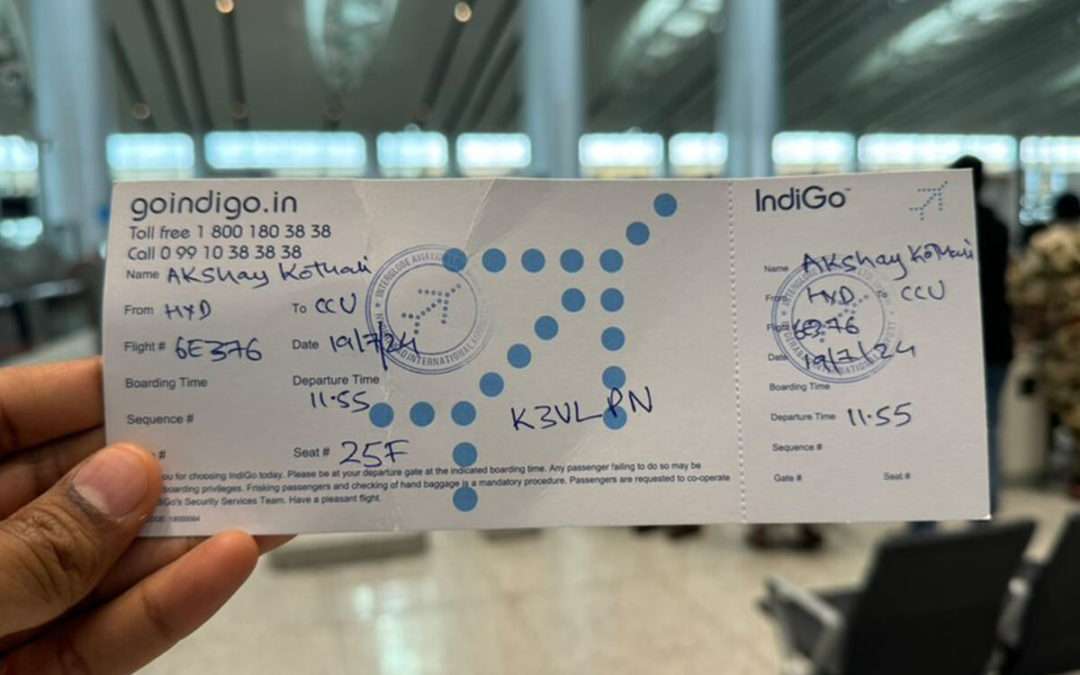
Microsoft Update Triggers The Largest Tech Disaster in History
Microsoft Update Triggers The Largest Tech Disaster in HistoryOn Friday morning, a global computer outage led to the cancellation of hundreds of flights across the United States, causing delays and confusion at airports nationwide. The disruption also affected...
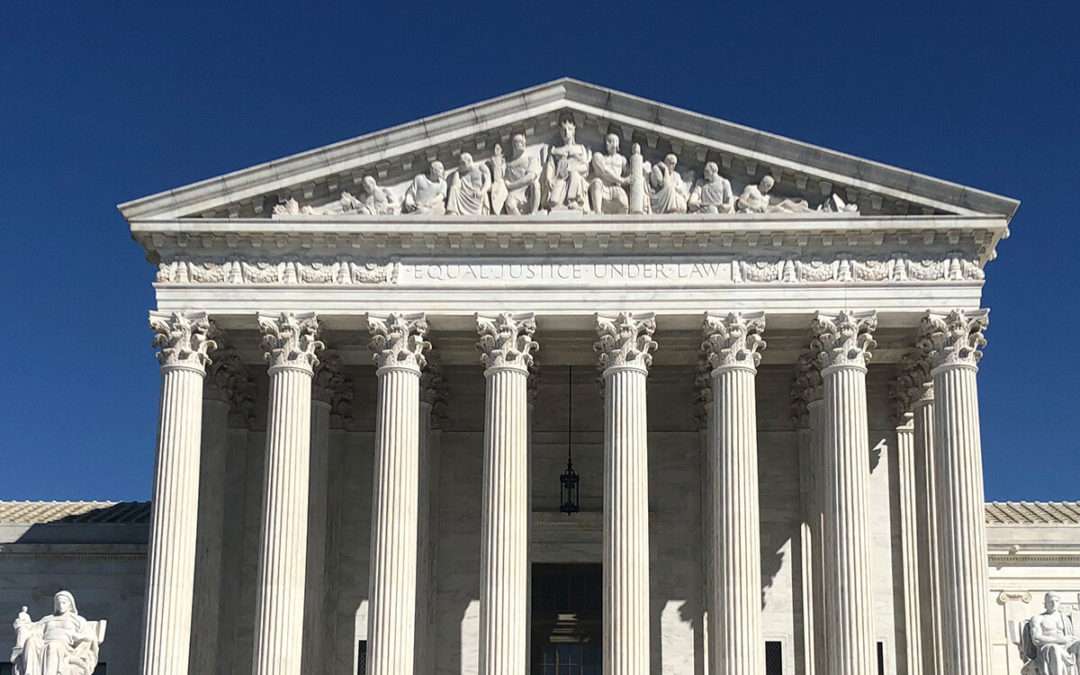
Supreme Court Strikes At Federal Experts
Supreme Court Strikes At Federal ExpertsWASHINGTON, D.C. - On June 28, 2024, the U.S. Supreme Court issued a landmark decision that will drastically alter the government's ability to enforce workplace safety, aviation standards, and commercial flight operations. This...

Hurricane Beryl Assistance and Resources
Disaster Assistance Resources AvailableJuly 15, 2024 Dear Sisters and Brothers, Hurricane Beryl made landfall on Monday, July 8, 2024, near Matagorda, TX, about 100 miles from Houston, battering Southeast Texas with heavy rains and winds. The storm has caused...
